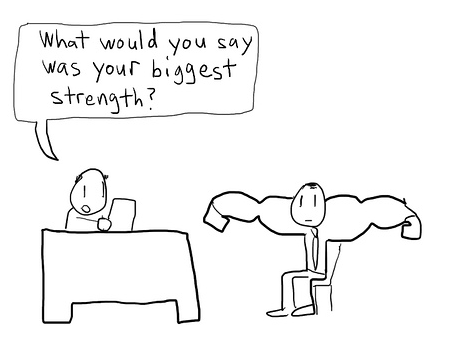12 Questions Experts Avoid Asking in Interviews
As hiring managers or recruiters we all want to hire the best people for our organizations. After all, a hiring mistake is a costly mistake. While it is difficult to fully assign a concrete number that everyone can agree on, you do need to think about lost productivity, additional recruitment costs, training costs, etc. On top of these quantitive costs, there are some qualitative costs to consider. For example, impacts to team morale, reputation impacts if mis-hires happen frequently, etc. For cost reasons alone, getting to know your candidates is important. However, the experts agree that asking outdated and predictable questions won’t net the results that you need. Skilled candidates can answer questions with the answers you want. So, let’s explore the most outdated questions that don’t produce results:
- Tell us a little about yourself?
- Where do you want to be in five years?
- What are your greatest strengths?
- What are your greatest weaknesses?
- If you were an animal, what would you be?
- What would your employees say are your weaknesses?
- What is the last book you read?
- What is your dream job?
- If I were to call your former employer what would he or she say about you?
- Tell me about a project you worked on that didn’t succeed?
- How would you sell me this book, pen or iPhone?
- Why should we hire you?
Some of you might be asking why these are outdated, and quite frankly terrible questions since so many organizations still use them. My answer is simple.
- First of all these questions are highly predictable. You can google them and find some good suggestions on how to answer them to make you look good. Therefore, the hiring manager and HR is not learning about you. They are getting a canned answer that doesn’t reveal anything about the candidate as a person and what makes them different.
- Likewise, as the candidate, you are not really learning about the potential employer. After all you should be using this time to interview the potential employer. These useless questions are taking up precious time. If you are hired, you will hopefully want to spend a few years with the employer and you want to make sure that there is a cultural fit both ways.
A lot of these questions don’t really give any insight into the candidate and how he or she will fit into the culture of the organization. If you made it to the interview stage, you should have the credentials to do the job. The skill set that will really set you apart from other candidates is whether or not there is a belief that you have the ability to fit in with the company culture. This is quite frankly the area that is missed most in hiring.
As outlined in Bloomburg Business Week article, cultural fit is trumping qualifications in many cases. In this highly competitive fast paced environment, people can’t afford high turnover rates. Asking outdated questions doesn’t net the results that organizations need. There is a real need to get to know the candidate. So, hiring managers need to rethink the process and HR Recruiters need to step up their game. As the economy improves, competition for skilled resources will increase. Are you ready?
Want to learn more? Sign up for our newsletter at TaylorMade Solutions (insert “newsletter” into inquiry box)


